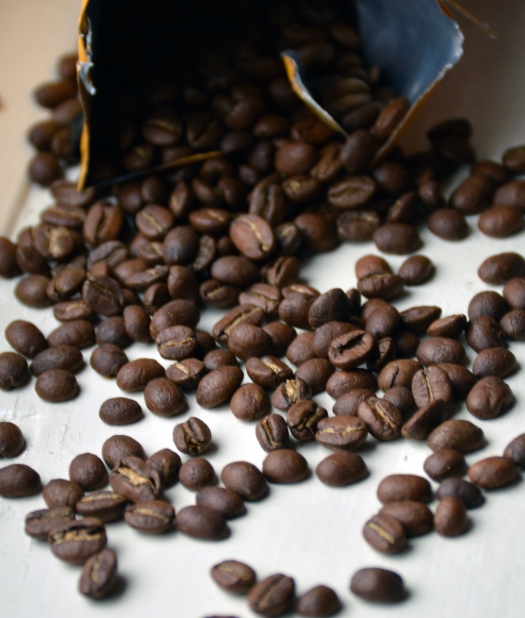I’ve started my morning with a cup of coffee for as long as I can remember. I recall indulging in a cup of java before catching the bus to high school, so it’s been a long time. I’ve even converted my boyfriend from an occasional coffee drinker to a typical New Yorker who scouts out the best neighborhood coffee houses. You may be thinking that this makes me a pretty bad nutritionist. I think many consider coffee to be a vice, but is it really that bad for your health? Well, I recently started to read about the nutritional aspects and health outcomes of coffee, and here’s what I found.
Coffee Nutrition Facts: Have you ever thought about what is actually in coffee? Yes, there’s caffeine, but there’s much more.
Coffee contains water. Not surprisingly, an 8-ounce cup of coffee contains 8 ounces of water. Coffee isn’t normally recommended for hydration, but it’s definitely an added benefit.
Antioxidants are prevalent in roasted coffee beans. Consumption of antioxidants have been associated with a lower risk of many diseases, such as cancer and heart disease. These powerful antioxidants may also help control blood glucose for those with Type 2 Diabetes.
Coffee is rich in riboflavin. Riboflavin, otherwise known as Vitamin B2, is one of the essential B vitamins. It’s not found in many foods, but it’s abundant in coffee. Riboflavin helps break down nutrients in the body, and a deficiency can lead to painful peeling skin and lips (ow!).
Coffee also contains Vitamin B5, aka pantothenic acid. Vitamin B5 helps the body maintain good digestive health!
And lastly, coffee is known for its caffeine content, which is likely the cause of coffee’s bad reputation. Each 8-ounce cup of coffee contains about 95 mg of caffeine, and a 2-ounce espresso shot has about 80 mg of caffeine. To put this into perspective, a 1-ounce milk chocolate bar (about the size of a Hersey bar) has about 5 mg of caffeine, a 12-ounce can of soda has 30 mg of caffeine, and an 8-ounce glass of tea has 40 mg of caffeine. It’s important to note, however, that most coffeehouse cups are at least 12 ounces and have about 120 mg of caffeine.
So how much caffeine can one person tolerate in a day without negative side effects? This information is controversial, but it seems that ingesting up to 400 mg of caffeine in one day does not have any adverse health effects. This number absolutely shocked me! That means that drinking 3 small coffees a day shouldn’t produce any negative side effects. Of course, caffeine does stay in your system for 4-6 hours, which will keep you awake at night. So don’t consume that 3rd cup of coffee past mid-afternoon!
Coffee & Health: It’s pretty evident from the above that coffee isn’t detrimental to health. Many studies have actually linked coffee consumption to health benefits. Here’s a few benefits of indulging in that cup of mud:
- Coffee may reduce the risk of developing Alzheimer’s. The antioxidants in coffee may prevent some brain cell damage associated with the disease.
- Coffee contains antioxidants, which may lower your risk of cancer. You know where else those antioxidants are found? VEGETABLES! Yup, coffee is good for you, but vegetables are better.
- This finding is actually my favorite: Caffeine consumption has been shown to improve athletic performance. I always have coffee before a race, but I make sure to consume my morning coffee at least 2 hours prior to the race to avoid digestion issues.
Overall Coffee Recommendation: As with everything, stick to the purest form of coffee and drink it in moderation. Consuming fancy drinks with caramel/vanilla/etc. syrups, whipped cream, or tons of whole milk can definitely lead to excess calorie consumption and weight gain. I recommend a black cup of coffee with about a tablespoon of milk (and a dash of simple syrup if you need a little sweet).



I love this post! Very insightful!
LikeLike
Thanks Alyssa!
LikeLike
I just love my black venti dark roast everyday 😛
LikeLiked by 1 person
Coffee is actually good for your skin. The foremost thing to have a healthy and glowing skin is to use skin care products enriched in antioxidants. These antioxidants protect your skin from damage and premature aging. Research has proved that coffee has substantial antioxidant benefits! In fact 3 – 5 cups of coffee a day provide you with around 60% of your daily antioxidant intake
LikeLike